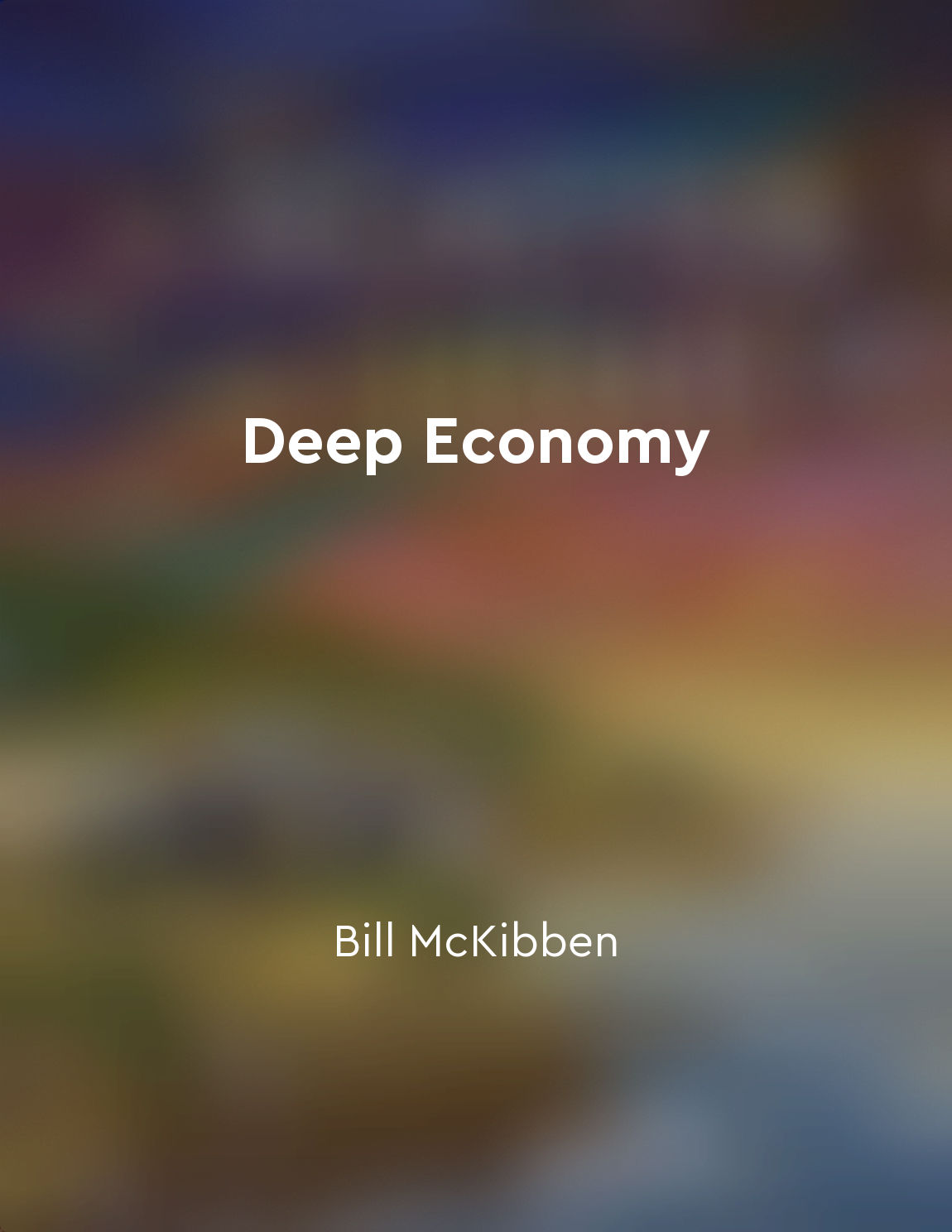Decentralized networks can adapt quickly to change from "summary" of The Starfish and the Spider by Ori Brafman,Rod A. Beckstrom
When it comes to adapting to change, centralized organizations often find themselves at a disadvantage. This is because decision-making is typically concentrated in the hands of a few individuals at the top, making it difficult for these organizations to pivot quickly in response to shifting circumstances. In contrast, decentralized networks have a distinct advantage in this regard. By distributing decision-making power across a wide network of participants, these organizations are better equipped to adapt swiftly to changing conditions. The key to the decentralized network's ability to adapt lies in its structure. Unlike centralized organizations, which have a hierarchical and top-down approach to management, decentralized networks operate in a more organic and bottom-up manner. This means that decisions are made at the local level by individual members, rather than being dictated from above. As a result, decentralized networks can respond rapidly to new information and adjust their strategies in real-time. Another factor that contributes to the adaptability of decentralized networks is their resilience. Because decision-making is distributed across a large number of nodes, these networks are less vulnerable to disruption. In a centralized organization, the failure of a single node (such as a key executive) can have far-reaching consequences. But in a decentralized network, the loss of one node is unlikely to have a significant impact on the overall functioning of the organization. Moreover, decentralized networks are able to harness the collective intelligence of their members. By tapping into the diverse perspectives and expertise of a large number of individuals, these networks are better able to generate innovative solutions to complex problems. This collective intelligence allows decentralized organizations to adapt quickly and effectively to changing circumstances, drawing on the creativity and ingenuity of their members.- The decentralized nature of networks enables them to adapt quickly to change by distributing decision-making power, fostering resilience, and leveraging collective intelligence. These characteristics give decentralized organizations a competitive edge in a rapidly evolving world, allowing them to thrive in the face of uncertainty and disruption.
Similar Posts

Evolution operates through bottomup mechanisms
The idea that evolution operates through bottom-up mechanisms is a fundamental concept in understanding how complex systems eme...
Building emotional resilience is key for navigating uncertainty and ambiguity
Building emotional resilience involves developing the capacity to remain calm, focused, and effective in the face of uncertaint...
Encourage open communication and feedback
To truly foster a culture of innovation within an organization, it is essential to create an environment where open communicati...

Strategic partnerships can open new markets and opportunities
Strategic partnerships are essential for companies looking to expand their reach and explore new markets. By collaborating with...

Local economies can provide resilience
In an increasingly interconnected and globalized world, the idea of local economies providing resilience may seem counterintuit...
Being empathetic and understanding towards others' concerns is important during change
In times of change, it is crucial for leaders to demonstrate empathy and understanding towards the concerns of their team membe...

Developing a strong support network can help founders navigate the challenges of handing over control
When founders are faced with the daunting task of handing over control of their company, they often find themselves overwhelmed...
Empathy breeds understanding in power dynamics
The ability to empathize with others plays a crucial role in power dynamics. When we take the time to understand another person...
Encourage feedback and open communication
Encouraging feedback and open communication is a crucial aspect of fostering a cohesive and agile team. Without a culture that ...

Champion inclusivity and diversity
To truly embrace diversity and inclusivity within an organization, it is essential to go beyond just paying lip service to the ...

